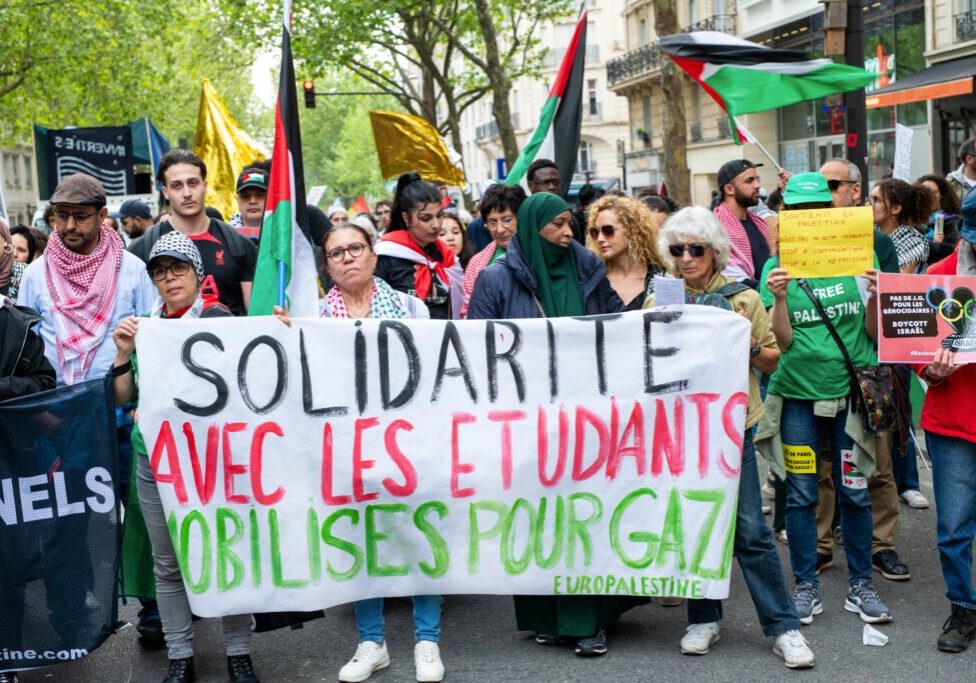Australia/Israel Review
Europa Europa: Pop-up Politics
Apr 14, 2014 | Douglas Davis
Douglas Davis
Europeans go to the polls in May to elect 751 members of the European Parliament for the next five years. Expect surprises. Not that the European Parliament carries much clout; clout is reserved for the army of unelected, unaccountable bureaucrats in Brussels and the sprinkling of political appointees.
The surprises will come from the pop-up political parties which are, first and foremost, opposed to the stifling embrace of the EU and which long for a return to the days when the European Project aimed to be simply a tariff-free trading bloc, without the accretions of monetary and political union, along with the slew of regulations and directives that now flow from Brussels.
Marine Le Pen, the savvy leader of the National Front, successfully re-branded the far-right party founded by her father, Jean-Marie Le Pen, and won more than 1,200 council seats in France’s municipal elections last month. The National Front is expected to top the poll in France’s European election, finishing ahead of the ruling Socialist Party and the opposition Popular Movement Union (UMP).
In Britain, the Deputy Prime Minister, Nick Clegg, leader of the Liberal Democrats, rashly challenged Nigel Farage, leader of the anti-Europe UK Independence Party, to a debate. Close to 70% of viewers who were polled judged Farage to have won. His party is likely to top the British poll in the European election, ahead of the Conservative and Labour parties. Clegg’s Liberal Democrats, the most ardently pro-European party in Britain, is expected to come last.
British Prime Minister David Cameron once described Farage’s followers as “a bunch of fruitcakes, loonies and closet racists”. When that failed to dent Farage’s support – and Cameron saw his own Eurosceptic Conservative voters melting away – he hastily switched tack, pledging to reform Brussels and offering British voters an “in-out” referendum on Europe after the next election. Too late. Farage is on a roll.
The populist parties might not exercise much influence in the European Parliament, but the emergence of demagogues in Europe is a matter of concern domestically, particularly when there is the widespread and growing disillusion with the ability of the established major parties to deal with the current bout of economic, political and social turbulence. It does not take a huge leap of the historical imagination to recall the impact in Europe of populists and demagogues offering instant and simplistic solutions in times of stress.
The current phenomenon does little to build confidence in Israel, where distrust of the European Union is plumbing new depths. A poll by the Washington-based Pew Research Centre found that only 41% of Israelis have a favourable view of the European Union, down from 56% five years ago.
It’s not hard to see why. As far as Europe is concerned, the Israeli-Palestinian conflict is the core and crux of all that ails the region. And it goes without saying that Israel is perceived as the culprit for those ailments. This view is in no way ameliorated by the Arab Human Development Reports, published by the United Nations since 2002, which show that Arab autocracies and cultural backwardness are the primary causes of the region’s woes.
“Even after the outbreak of the Arab revolutions revealed that corruption – and lack of dignity, democracy and opportunity – were to blame for the rage of the Arab street, Europe insisted on the centrality of the Israeli-Palestinian conflict,” says Clemens Wergin, Foreign Editor of the leading German daily Die Welt. “Europe and Israel have hit rough spots before, but the rancor of the last few years is different – more vituperative, more widespread. European animosity toward Israel goes beyond the public… it seems aimed to increasingly push Israel into a corner.”
According to Wergin, European officials invariably magnify Israel’s shortcomings while minimising those of the Palestinians. “It is always comfortable for Europeans to demand that Israel make hard decisions for peace,” he says. “But Europe must now ask itself some hard questions, too. What guarantees could Europe offer Israel… if the peace experiment failed and radicals took over the West Bank? Would Europe be ready to offer membership in NATO and the European Union if the Israelis asked for it? I am not sure there are any promising answers to these questions. But if all Europe has to offer Israel is criticism and disapproval, then it will be part of the problem, not the solution.”
It is worth remembering that Europe’s first joint declaration on foreign affairs was issued in 1973 after the Yom Kippur War. Its aim was not to condemn the Arab states which had launched an unprovoked war on Israel, but rather to appease the Gulf states in the hope they would lift the oil embargo against the West. Since then, hostility to Israel remains the sole foreign policy issue that is guaranteed to rally all 28 member-states of the European Union.
The European elections should not hold new terrors for Israelis. Whatever damage the new populists may cause in the European Parliament will not affect a narrative that has already been set in stone.
The fruitcakes and loonies might have written it themselves.
Tags: Europe






